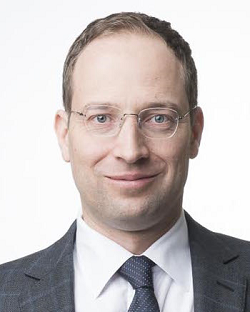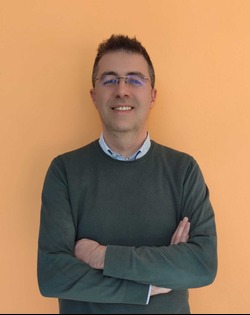
San Raffaele Telethon Institute for Gene Therapy
Translational stem cell and leukemia

Translational stem cell and leukemia Unit is operating at the intersection of science and clinics, with the mission to bring cutting edge science to patients. In particular, the unit cover 3 thematic areas:
- Functional intra-tumor heterogeneity and determinants of relapse/non-response to treatment in acute leukemia
- Innovative approaches for ex vivo gene transfer into hematopoietic stem and progenitor cells
- Genetically-engineered HSPC as an innovative treatment for malignancies
Research activity
- Functional intra-tumor heterogeneity and determinants of relapse/non response to treatment in acute leukemia. The group uses microRNA reporters to prospectively identify blast heterogeneity in AML and ALL patients and understand the functional implications of this heterogeneity and its molecular mechanisms. Concepts such as leukemic stem cell hierarchies and subclonal architecture are tested, as well as ways to integrate them into clinical decision making. The unit is implementing novel technologies such as clonal tracking and single cell RNA sequencing to comprehensively address intra-tumor heterogeneity in leukemia.
- Innovative approaches for ex vivo gene transfer into hematopoietic stem and progenitor cells. The unit aims to understand the behavior of human HSC in ex vivo culture, to identify cell subsets in which they are enriched during expansion culture and explore culture conditions optimally supporting their expansion. This will provide a platform to tailor and streamline genetic engineering of HSPC for gene editing and gene addition approaches in genetic diseases and cancer.
- Genetically-engineered HSPC as an innovative treatment for malignancies. By exploiting the capacity of HSPC to extensively home to tissues including the tumor microenvironment, the unit is bringing a cancer gene therapy approach based on the transplantation of HSPC engineered with a transcriptionally and post-transcriptionally regulated interferon- transgene into the clinics. Researchers are studying, in the context of hematologic malignancies how various cytokines can enhance the induction of anti-tumor immunity in animal models, and how this effect can be potentiated by combination therapies. The group is also exploring novel ways of delivering a genetically-engineered myeloid graft into tumors, by progenitor expansion, local delivery and novel conditioning.
Gentner B, Tucci F, Galimberti S, Fumagalli F, De Pellegrin M, Silvani P, Camesasca C, Pontesilli S, Darin S, Ciotti F, Sarzana M, Consiglieri G, Filisetti C, Forni G, Passerini L, Tomasoni D, Cesana D, Calabria A, Spinozzi G, Cicalese MP, Calbi V, Migliavacca M, Barzaghi F, Ferrua F, Gallo V, Miglietta S, Zonari E, Cheruku PS, Forni C, Facchini M, Corti A, Gabaldo M, Zancan S, Gasperini S, Rovelli A, Boelens JJ, Jones SA, Wynn R, Baldoli C, Montini E, Gregori S, Ciceri F, Valsecchi MG, la Marca G, Parini R, Naldini L, Aiuti A, Bernardo ME; MPSI Study Group. Hematopoietic Stem- and Progenitor-Cell Gene Therapy for Hurler Syndrome. N Engl J Med. 2021 Nov 18;385(21):1929-1940. doi: 10.1056/NEJMoa2106596. PMID: 34788506.
Mucci A, Antonarelli G, Caserta C, Vittoria FM, Desantis G, Pagani R, Greco B, Casucci M, Escobar G, Passerini L, Lachmann N, Sanvito F, Barcella M, Merelli I, Naldini L, Gentner B. Myeloid cell-based delivery of IFN-γ reprograms the leukemia microenvironment and induces anti-tumoral immune responses. EMBO Mol Med. 2021 Oct 7;13(10):e13598. doi: 10.15252/emmm.202013598. Epub 2021 Aug 30. PMID: 34459560; PMCID: PMC8495462.
Capo V, Penna S, Merelli I, Barcella M, Scala S, Basso-Ricci L, Draghici E, Palagano E, Zonari E, Desantis G, Uva P, Cusano R, Sergi Sergi L, Crisafulli L, Moshous D, Stepensky P, Drabko K, Kaya Z, Unal E, Gezdirici A, Menna G, Serafini M, Aiuti A, Locatelli SL, Carlo-Stella C, Schulz AS, Ficara F, Sobacchi C, Gentner B, Villa A. Expanded circulating hematopoietic stem/progenitor cells as novel cell source for the treatment of TCIRG1 osteopetrosis. Haematologica. 2020 Jan 16. pii: haematol.2019.238261.
Escobar G, Barbarossa L, Barbiera G, Norelli M, Genua M, Ranghetti A, Plati T, Camisa B, Brombin C, Cittaro D, Annoni A, Bondanza A, Ostuni R, Gentner B*, Naldini L Interferon gene therapy reprograms the leukemia microenvironment inducing protective immunity to multiple tumor antigens. Nat Commun. 2018 Jul 24;9(1):2896. doi: 10.1038/s41467-018-05315-0. (*co-last author)
Zonari E, Desantis G, Petrillo C, Boccalatte FE, Lidonnici MR, Kajaste-Rudnitski A, Aiuti A, Ferrari G, Naldini L, Gentner B. Efficient ex vivo engineering and expansion of highly purified human hematopoietic stem and progenitor cell populations for gene therapy. Stem Cell Reports. 2017 Apr 11;8(4):977-990.
Nucera S, Giustacchini A, Boccalatte F, Calabria A, Fanciullo C, Plati T, Ranghetti A, Garcia-Manteiga J, Cittaro D, Benedicenti F, Lechman ER, Dick JE, Ponzoni M, Ciceri F, Montini E, Gentner B*, Naldini L. miRNA-126 orchestrates an oncogenic program in B cell precursor acute lymphoblastic leukemia. Cancer Cell. 2016 Jun 13;29(6):905-921. (*co-last and co-corresponding author)
Lechman ER, Gentner B*, Ng SWK, Schoof EM, van Galen P, Kennedy JA, Nucera S, Ciceri F, Kaufmann KB, Takayama N, Dobson SM, Trotman-Grant A, Krivdova G, Elzinga J, Mitchell A, Nilsson B, Hermans KG, Eppert K, Marke R, Isserlin R, Voisin V, Bader GD, Zandstra PW, Golub TR, Ebert BL, Lu J, Minden M, Wang JCY, Naldini L, Dick JE. miR-126 regulates distinct self-renewal outcomes in normal and malignant hematopoietic stem cells. Cancer Cell. 2016 Apr 11;29(4):602-606. (*co-first author)
Gentner B, Pochert N, Rouhi A, Boccalatte F, Plati T, Berg T, Sun SM, Mah SM, Mirkovic-Hösle M, Ruschmann J, Muranyi A, Leierseder S, Argiropoulos B, Starczynowski DT, Karsan A, Heuser M, Hogge D, Camargo FD, Engelhardt S, Döhner H, Buske C, Jongen-Lavrencic M, Naldini L, Humphries RK, Kuchenbauer F. MicroRNA-223 dose levels fine tune proliferation and differentiation in human cord blood progenitors and acute myeloid leukemia. Exp Hematol. 2015 Oct;43(10):858-868.e7.
Chiriaco M, Farinelli G, Capo V, Zonari E, Scaramuzza S, Di Matteo G, Sergi LS, Migliavacca M, Hernandez RJ, Bombelli F, Giorda E, Kajaste-Rudnitski A, Trono D, Grez M, Rossi P, Finocchi A, Naldini L, Gentner B*, Aiuti A. Dual-regulated lentiviral vector for gene therapy of X-linked chronic granulomatosis. Mol Ther. 2014 Aug;22(8):1472-83. (*co-last author)
Genovese P, Schiroli G, Escobar G, Tomaso TD, Firrito C, Calabria A, Moi D, Mazzieri R, Bonini C, Holmes MC, Gregory PD, van der Burg M, Gentner B, Montini E, Lombardo A, Naldini L. Targeted genome editing in human repopulating haematopoietic stem cells. Nature. 2014 Jun 12;510(7504):235-240.
Escobar G, Moi D, Ranghetti A, Ozkal-Baydin P, Squadrito ML, Kajaste-Rudnitski A, Bondanza A, Gentner B, De Palma M, Mazzieri R, Naldini L. Genetic engineering of hematopoiesis for targeted IFN-α delivery inhibits breast cancer progression. Sci Transl Med. 2014 Jan 1;6(217):217ra3.
Zonari E, Pucci F, Saini M, Mazzieri R, Politi LS, Gentner B*, Naldini L. A role for miR-155 in enabling tumor-infiltrating innate immune cells to mount effective antitumor responses in mice. Blood. 2013 Jul 11;122(2):243-52. (*co-last author)
Lechman ER, Gentner B*, van Galen P, Giustacchini A, Saini M, Boccalatte FE, Hiramatsu H, Restuccia U, Bachi A, Voisin V, Bader GD, Dick JE, Naldini L. Attenuation of miR-126 activity expands HSC in vivo without exhaustion. Cell Stem Cell. 2012 Dec 7;11(6):799-811. ( *co-first author)
Gentner B, Visigalli I, Hiramatsu H, Lechman E, Ungari S, Giustacchini A, Schira G, Amendola M, Quattrini A, Martino S, Orlacchio A, Dick JE, Biffi A, Naldini L. Identification of hematopoietic stem cell-specific miRNAs enables gene therapy of globoid cell leukodystrophy. Sci Transl Med. 2010 Nov 17;2(58):58ra84.






